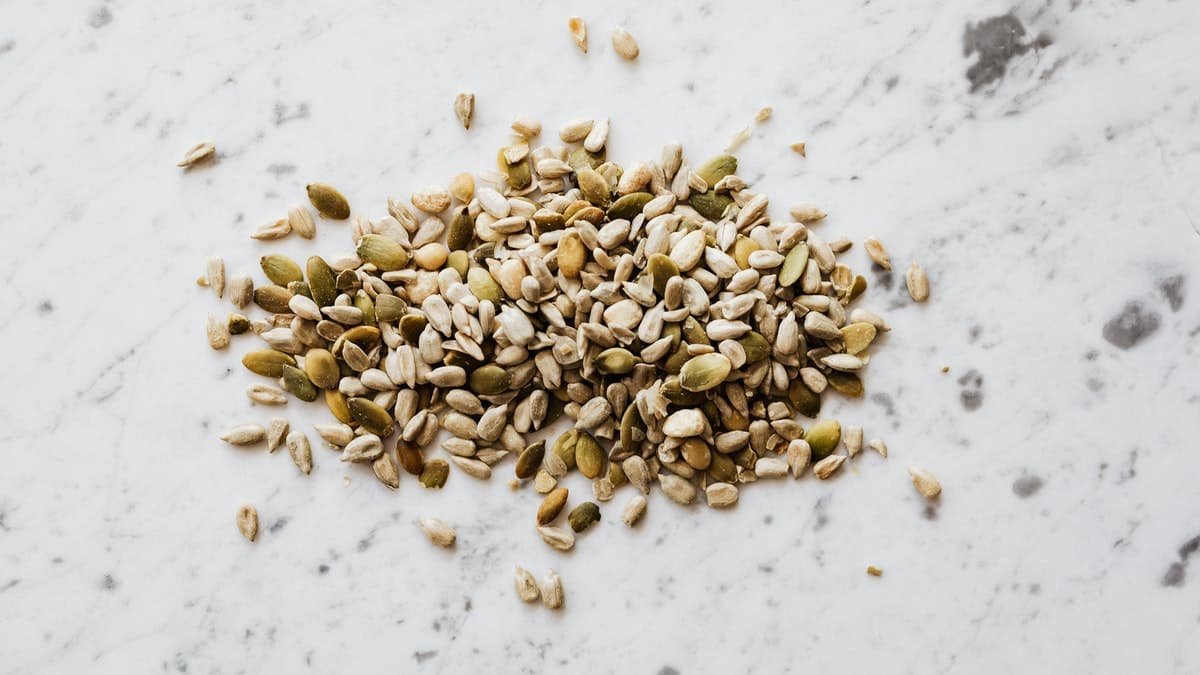Phenylalanine: Benefits, Foods, Side Effects And Phenylketonuria

This page provided information about Phenylalanine, such as health benefits, foods that contain Phenylalanine possible side effects and about Phenylketonuria – the most common health issue related to the malabsorption of Phenylalanine from the body.
What is | Foods | Benefits | Side Effects | Phenylketonuria
Phenylalanine is an essential amino acid found in many foods, beverages and supplements. Discover the benefits it can offer you in reducing appetite and stress and boosting athletic performance and mood.
What is phenylalanine?
Phenylalanine is a natural amino acid found in food or can be taken as a supplement. Our body uses phenylalanine to make protein. Phenylalanine is an essential amino acid, which means that your body cannot synthesize it, so it is necessary to get it from your diet or from a dietary supplement. One thing to know is that it is difficult to get exact amounts of the amino acid from the diet.
Phenylalanine is not only an integral part of protein production in the muscles, brain, blood and organs. In our bodies, phenylalanine is converted into another amino acid, tyrosine, which in turn is used by the body to produce a class of neurotransmitters called catecholamines, which include adrenaline, noradrenaline and dopamine.
These three neurotransmitters are important for alertness, memory retention and coordination of muscle movements.
There are two forms of phenylalanine: L-phenylalanine and D-phenylalanine. The difference between them lies in their molecular structure. L-phenylalanine is found in food and D-phenylalanine is a synthetic form (usually used for medical purposes).
Which foods contain phenylalanine?
Phenylalanine is a naturally occurring amino acid found in many foods. These are:
If your diet has adequate protein and you get your protein from a variety of foods, you’re probably getting enough of the essential amino acids, including phenylalanine.
You may also have heard that phenylalanine is found in some beverages, particularly soft drinks and alcoholic beverages. The artificial sweetener aspartame contains phenylalanine, and aspartame is added to some drinks as a sugar substitute.
Whether it is safe to consume phenylalanine in the form of aspartame is one of the hot topics of debate in the field of nutrition and studies are controversial. It is, however, recognized as a safe additive for use in foods and beverages in the EU and the US, under the code number E951.
What are the benefits of phenylalanine
What are the side effects?
Phenylalanine is generally safe. However, if you are one of the few people with phenylketonuria you will already know that your body cannot process phenylalanine properly and therefore you should not take any phenylalanine supplements.
It is best to take phenylalanine with fruit juices or water instead of milk. The best time to take it is half an hour before any meal or sleep.
Phenylketonuria
Phenylketonuria (PKU) is a rare inherited metabolic disease. The incidence in neonates is 1/1000. It is the result of a deficiency or lack of the enzyme phenylalanine hydroxylase, which converts phenylalanine to tyrosine (amino acids), resulting in the accumulation of phenylalanine in the body. The excessive amount of phenylalanine exerts a toxic effect, in the blood and especially in the brain.
Phenylketonuria Symptoms
The main symptom is the inability of brain cells to grow and function normally, resulting in mental retardation. Phenylketonuria is detected by a biochemical blood test (Guthrie test) performed at birth.
Treatment
In recent years, many steps have been taken to treat the disease with the development of new approaches such as gene therapy, sapropterin and phenylalanine ammonia lyase.
The goals of treating the disease are to maintain blood levels of phenylalanine within safe limits (120-360 umol/L in the general population, pregnant women 120-240 umol/L), prevent mental retardation, to ensure normal development.
This can be done by introducing a low phenylalanine diet, depending on the form (classical, moderate, mild) of phenylketonuria present.
Nutritional management
The main concern of nutritional management is to avoid acute and chronic elevated concentrations of phenylalanine in plasma and, consequently, in brain tissue, which is responsible for the deterioration of neuronal performance and behavior.
Restriction of dietary intake of phenylalanine is initiated as soon as the disease is confirmed. Patients with phenylketonuria should avoid protein-rich foods (meat, fish, eggs, milk and dairy products, bread, nuts and seeds). Low protein foods such as vegetables, fruit, certain cereals, bread and pasta are allowed.
What are the dietary recommendations?
Carbohydrate-rich foods can be consumed, such as fats, vitamins and minerals. Saturated and polyunsaturated fatty acids should be taken in small amounts. More specifically, the recommendation for saturated fatty acids is that they should account for less than 7% of total energy and for polyunsaturated fatty acids more than 5%.
Cholesterol intake should not exceed 50 mg/day. Breast milk can be consumed by babies suffering from the disease, together with the intake of special low or phenylalanine-free milk.
What is recommended?
It is recommended that babies are given preformed long chain polyunsaturated fatty acids (LCPUFA) to help their brains develop properly. Research has suggested taking 15mg/kg/day of docosahexaenoic acid (DHA). Also, pregnant women could benefit from taking LCPUFA as the maximum transfer of fatty acids to the placenta occurs during the last trimester of pregnancy.
Which supplements to consume?
Sufferers are advised to consume supplementation with calcium, iron, selenium, zinc, vitamins (folic acid, A, C, D, E, B2, B6, B12), carnitine and taurine.
Foods containing aspartame as an additive cannot be consumed by sufferers because it breaks down into aspartic acid, phenylalanine and small amounts of methanol. Aspartame is found in low- and low-calorie foods as a substitute for sugar. The best known example is light soft drinks.
